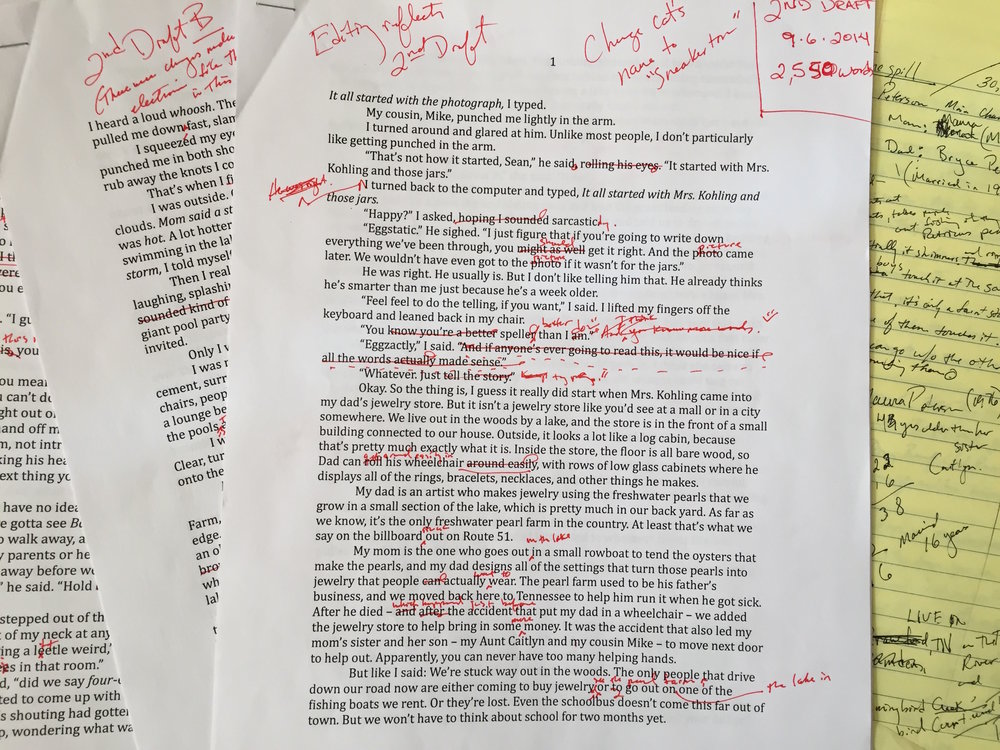It's the end of August. Which means the month that celebrates novel writing—November—is still a couple of months away. But if you're thinking about joining the thousands of others who will set aside time this fall to write the story you've been yearning to write, it pays to lay the groundwork before November 1 comes along. Otherwise, you may spend more time on research and character building than writing. (See my other post here about NaNoWriMo.)
Reaching your NaNoWriMo goals will be a lot easier with the help of an iPhone and/or iPad. For the last two years, I've been working entirely on an iPad, an enthusiastic convert to an iOS-only workflow.
iOS-only may not be in your future. But if you own an iPad or iPhone, either one or both are probably always close to hand. Which means novel writing doesn't have to wait until you have a few free hours at your desk. You can dictate ideas in the car, jot a couple of paragraphs at the doctor's office, and write a sentence or two while on-line at the Post Office. Even if these devices never push aside your main computer, they can be invaluable adjuncts.
The following apps can help:
Drafts (iPad, iPhone, Apple Watch)
Drafts is a note-taking app. It is also much more. But if you're in need of a way to very quickly capture ideas, Drafts may be just what you're looking for. What sets it apart from other note-taking apps, such as Apple's own Notes, is that it requires zero effort.
Want to quickly jot a note, remind yourself of a useful resource to check out, email a writer friend for advice? Tap the Drafts icon and start typing. There are no folders to open, no file names to come up with, no hassle whatsoever. As soon as the app opens, you can start typing. You don't even have to know what you want to do with what you've written; that's decided after you're done. Drafts gives you just about every option available for text actions: Send it as an email or Twitter post, add it to your calendar, post it to your blog, save it to Dropbox, copy/print/share it, etc.
For me, Drafts is mainly for easily getting text in and out again. It isn't ideal as a warehouse for text, though you can use it for that if you like. For the long-term storage of notes and ideas—or if I know the text never has to go anywhere else—I prefer Notes.
LiquidText (iPad-only)
If Drafts is "a note-taking app," LiquidText is a PDF reader. Sure, you can use it for that. For me, though, it is the app where I store all of my PDF and Web-based research. First, you can highlight important text—from both PDFs and Web sites, using the app's integrated browser. But use your iPad in landscape mode, and your documents shift to the left, opening up a workspace on the right side of the screen where you can actually drag and drop selected text for easy reference. Helpfully, each dropped bit of text remains linked to its place in the original document so you can always go back and see it in context.
Because LiquidText excels at this kind of document handling, it's particularly useful if you're gathering lots of information about, say, an unfamiliar location or occupation or anything else in your novel. For instance, if a character is confronting a rare illness, your 16-page research article from a medical journal is much more useful when you cannot only highlight the relevant sentences but literally pull them out for easy reference or even copying into other apps.
Scrivener (iPad)
Scrivener is my writing app of choice for everything from articles and nonfiction books to novels. (Even though I use it exclusively on the iPad these days, it's more full-featured on MacOS.) Much has been written about this, so I won't rehash its many features here. Just know that it was created specifically for writing novels. As such, it offers aids to organization, managing multiple drafts, and producing final text (including Word, .txt, PDFs, and e-book formats) that other "word processing" apps—including Word—cannot match.
If you're considering Scrivener, I'd suggest starting sooner than later. There's an extensive built-in primer that walks users through a complete project in very thorough detail, and it's worth spending time with it. Because of the learning curve, you won't wring the most out of Scrivener if you wait until you're ready to start writing before trying it out.
These are my top three picks for iOS. What are your favorites for fiction?


